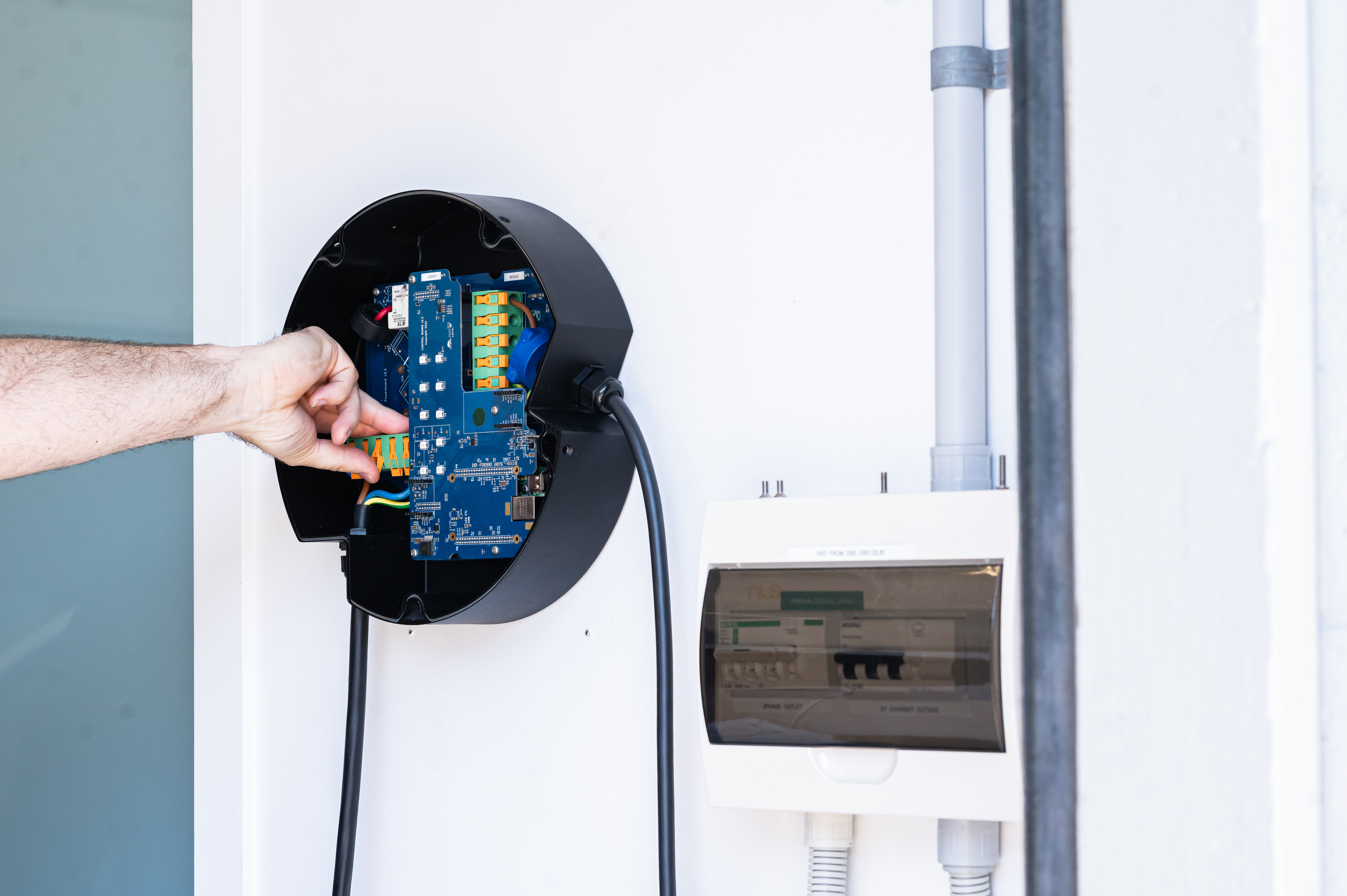What Do You Need To Consider When Installing Your EV Charger?

Welcome to our in-depth guide for individuals and bussineses considering the installation of an electric vehicle (EV) charger. It covers key aspects such as safety, compliance, cost considerations, and choosing the right installation service.
DIY Installation Feasibility
Installation by Non-Professionals
The complexity of EV charger installation generally precludes it as a do-it-yourself (DIY) project for those without electrical expertise. Improper installation poses significant risks, including fire hazards and electric shock. Furthermore, self-installation may invalidate the manufacturer’s warranty on the charging equipment.
Professional Installation Necessity
Hiring a certified and experienced installer is crucial for ensuring safe and compliant installation. Professional installation adheres to regional health regulations and pandemic-related safety protocols.
Finding a Qualified Installer
Searching for Installation Services
Potential sources for locating a qualified EV charging station installer include recommendations from EV charger manufacturers, automobile associations, EV driver communities, local car dealers, and online searches for certified installers.
Importance of Specialized Experience
Selecting an installer with specific experience in EV charger installation is essential, as general electrical expertise may not encompass the specialized requirements of EV charging systems.
Installation Process and Factors
Safety Considerations
Ensuring the safety of the installation is paramount. A proficient installer will have comprehensive knowledge of the home’s electrical system and the specific EV charger, mitigating risks associated with high electricity transmission.
Compliance and Certification
A qualified installer ensures compliance with national wiring regulations and provides local support, which is hugely beneficial if you run into issues.
Cost Estimation
Installation costs vary based on location and technical specifications. Factors influencing cost include distance between the fuse box and the charger location, cable requirements, and labor. The cost of electrical components and the need for custom quotes to avoid unforeseen expenses are highlighted.
Utilizing Grants
Exploring national and local incentives for EV charger installation can significantly offset initial costs. These incentives often cover a substantial portion of the installation expenses.
Specialized Installation Services
Specialisation in EV Charger Installation
We advise seeking installers with specific training and expertise in EV charger installation due to the technical and regulatory complexities involved.
End-to-End Service Considerations
Opting for an installer offering a comprehensive service, including pre-installation advice, post-installation guidance, and smart charger setup, is recommended. This approach ensures a thorough understanding of the charger’s operation and integration with existing systems.
Future-Proofing the Installation
Considering future EV needs is essential when choosing a charger and installation plan. We suggests discussing with the installer or charger company about selecting a setup that accommodates both current and future EVs, thereby avoiding the need for future infrastructure upgrades.
Conclusion
Proper EV charger installation is a significant investment in safety, compliance, and future charging needs. The selection of a qualified installer with specific expertise in EV charging stations is crucial. An end-to-end service ensures comprehensive coverage for all present and future charging requirements, making the investment a valuable addition to the property.